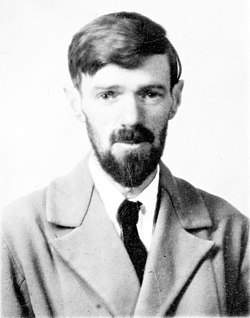D.H. Lawrence Quote
Owing to the flood of shallow books which really are exhausted in one reading, the modern mind tends to think every book is the same, finished in one reading. But it is not so. And gradually the modern mind will realize it again. The real joy of a book lies in reading it over and over again, and always finding something different, coming upon another meaning, another level of meaning. It is, as usual, a question of values: we are so overwhelmed with quantities of books, that we hardly realize any more that a book can be valuable, valuable like a jewel, or a lovely picture, into which you can look deeper and deeper and get a more profound experience very time. It is far, far better to read one book six times, at intervals, than to read six several books.
Owing to the flood of shallow books which really are exhausted in one reading, the modern mind tends to think every book is the same, finished in one reading. But it is not so. And gradually the modern mind will realize it again. The real joy of a book lies in reading it over and over again, and always finding something different, coming upon another meaning, another level of meaning. It is, as usual, a question of values: we are so overwhelmed with quantities of books, that we hardly realize any more that a book can be valuable, valuable like a jewel, or a lovely picture, into which you can look deeper and deeper and get a more profound experience very time. It is far, far better to read one book six times, at intervals, than to read six several books.
Related Quotes
About D.H. Lawrence
(1913), The Rainbow (1915), Women in Love (1920), and Lady Chatterley's Lover (1928) – were the subject of censorship trials for their radical portrayals of romance, sexuality and use of explicit language.
Lawrence's opinions and artistic preferences earned him a controversial reputation; he endured contemporary persecution and public misrepresentation of his creative work throughout his life, much of which he spent in a voluntary exile that he described as a "savage enough pilgrimage". At the time of his death, he had been variously scorned as tasteless, avant-garde, and a pornographer who had only garnered success for erotica; however, the English novelist and critic E. M. Forster, in an obituary notice, challenged this widely held view, describing him as "the greatest imaginative novelist of our generation". Later, the English literary critic F. R. Leavis also championed both his artistic integrity and his moral seriousness.
